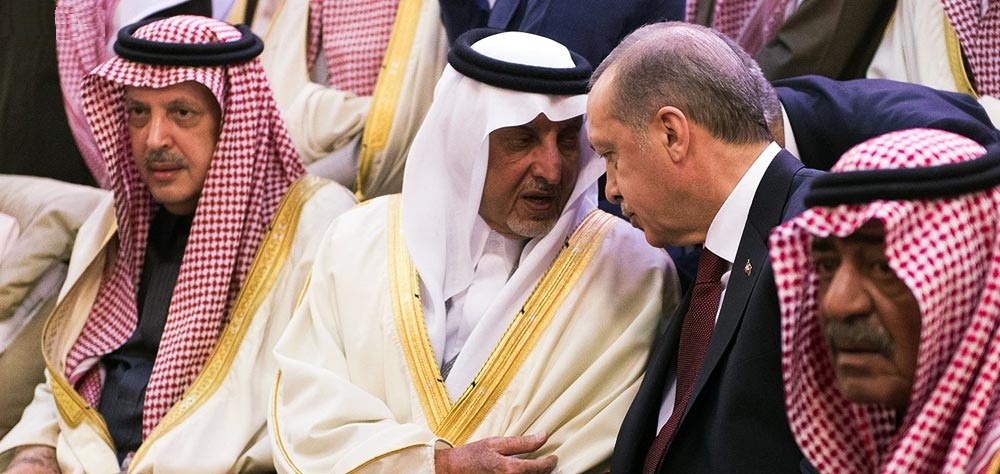
RNA - Top on the agenda of the four-day regional tour which commenced on Sunday was economic cooperation between Turkey and the three Persian Gulf countries with security and political issue also dominating the talks.
In his visit to the three sheikhdoms, Erdogan is accompanied by Foreign Minister Mevlut Cavusoglu; Energy and Natural Resources Minister Berat Albayrak; Economy Minister Nihat Zeybekci; National Defense Minister Fikri Isik; and National Intelligence Agency chief Hakan Fidan.
During his whirlwind tour which started in Bahrain, Erdogan and country's King Hamad bin Isa Al Khalifa had a private meeting in addition to committee meetings in which the two countries signed deals on education, economy, energy and defense.
Closed door meeting with Saudi deputy crown prince
In his visit to Saudi Arabia on Tuesday Erdogan met the kingdom's ruler Salman bin Abdulaziz al-Saud in Riyadh where the two leaders reportedly spoke over lunch.
Earlier, Erdogan also met with Saudi Deputy Crown Prince and defense minister Mohammad bin Salman Al-Saud. That meeting, which lasted roughly 50 minutes, was held behind closed doors.
Erdogan arrived in Qatar late on Tuesday night in the last leg of his trip to the Persian Gulf states. Qatar appears to have better economic and security ties with Turkey than other Persian Gulf Cooperation Council member-states.
Economic relations between Turkey and Qatar saw significant growth between 2007 and 2016 -- a period that also coincided with improved diplomatic relations.
Last year, Turkey exported some $440 million worth of ships, yachts, electrical and electronic devices, machines and furniture to Qatar. Over the same period, Turkey imported some $271 million worth of aluminum, oil, petroleum products, and plastic products from Qatari manufacturers. Qatar has promising projects for Turkish investors as the country will be hosting the 2022 FIFA World Cup, which requires a lot of infrastructure investments.
Persian Gulf Sheikhdoms lucrative for Turkey's products
These three Persian Gulf Countries have been major destination for Turkey's exports from 2007 to 2016. According to statistics, during this period, Turkeys' exports to the three sheikhdoms amounted to nearly $33 billion. Saudi Arabia became the largest importer of Turkish goods with $27 billion during the same period and it was followed by Qatar with $3.9 billion and Bahrain with $1.7 billion.
Turkey's Tourism income drops
Turkey badly needs trade with Arab states as its tourism has taken a beating following increased terrorist attacks in the country and therefore Erdogan's visit to the Persian Gulf states is aimed at shoring up a declining economy. According to travel intelligence firm ForwardKeys, the number of tourists entering Turkey via airports fell 21% in 2016.
Even before the latest attack in Istanbul, the number of visitors was expected to fall by another 22% in the first few months of 2017. The World Travel & Tourism Council says Tourism constitutes about 5% of Turkey's economy while supports over 2 million jobs, or 8% of all employment.
With the frequent attacks by terrorists, the contribution of tourism in Turkey's economy will continue to decline and thus authorities in Ankara are looking for ways to fill the gaps.
847/940